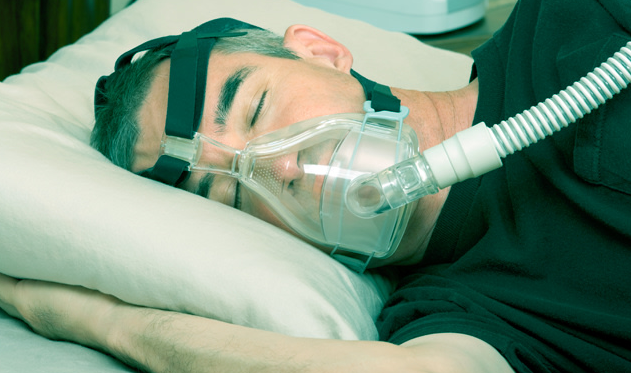

Sleep apnea is a sleep disorder commonly found in people with breathing problems. It is a condition when a person suddenly stops breathing while sleeping. This change in breathing patterns results in the brain sending the reflexes to your body to respond. Thus, the person starts breathing again.
This condition is life-threatening and can cause a person to be tired all the time because of daytime sleepiness. Other health-related issues are also involved with this kind of sleep disorder, such as low blood oxygen levels, which can ultimately weaken the heart. Due to this reason treating sleep apnea is crucial.
Luckily, there are numerous treatment options available that can significantly improve the [patient's condition. If you or your loved one is suffering from this disorder and want to explore the options, then you are at the right place, as this blog will provide you with just that.
Sleep apnea is a sleep disorder commonly found in people who have difficulty breathing. Apparently, the person stops breathing while they are asleep. This usually happens in obstructive sleep apnea, where the blockage in the nasal passages causes the patient to stop breathing. Thankfully, the brain sends signals to your body, which restores breathing. In some cases, the brain fails to send this signal; it is an advanced stage of sleep apnea known as central sleep apnea.
There is not any one root cause that causes sleep apnea. There could be numerous factors that, if they come together, can cause this sleep disorder. To diagnose sleep apnea, it's important to seek professional aid. Some of the causes of sleep apnea are:
A poor sleep cycle can cause sleep apnea in children. It starts with a minor disruption in the sleep cycle which increases over time to the point that an individual is unable to maintain a healthy sleep cycle. This can result in poor sleep quality, which could be the reason for low blood oxygen levels, lack of concentration, anxiety, stress and depression. Collectively these issues can cause obstructive sleep apnea.
In today's unhealthy lifestyle, where the use of alcohol, cigarettes and other beverages has become the new normal, it's tough to maintain a healthy lifestyle. Quitting smoking won't cut it if you are surrounded by people who smoke, as the smoke they generate is still harmful. This unhealthy way of living is very much the cause of various medical conditions, including sleep disorders.
Mild sleep apnea is commonly found in people who have pre-existing airway obstructions. There could be a blockage in the nasal airway, or the person has asthma.
In the case of severe obstructive sleep apnea, the capability of the brain's functioning is compromised. As a result, when the person sleeps and goes into an unconscious state, he stops breathing. To make matters worse, the brain is also unable to send the signal to revive breathing. Thus, it can also lead to the sudden death of the patient.
Health conditions such as high blood pressure, excess weight and heart-related issues can also cause sleep apnea. It is also fairly common in people who have thick necks. Simply put, any health condition affecting your breathing directly or indirectly can worsen sleep apnea.
Numerous sleep apnea treatment options can help manage your condition, and in some cases, it can be cured as well. Moderate sleep apnea is treatable with therapies. However, for severe sleep apnea, you might need surgery. Your sleep apnea symptoms can tell you whether it's mild or severe. Some of the common treatments for sleep apnea are:
Obstructive sleep apnea syndrome is manageable with the use of CPAP therapy. You only need a breathing device like a CPAP machine that supplies continuous positive airway pressure to your airways. Constant use of this therapy can cure mild obstructive sleep apnea. You might need soft palate or nasal surgery for advanced obstructive sleep apnea. For children, adenotonsillectomy is recommended if the cause of this sleep disorder is enlarged tonsils.
To treat central sleep apnea, you must know its cause. For instance, if it is caused because of heart failure, then therapies that can improve this condition would be suitable. Patients with severe central sleep apnea might need adaptive servo-ventilation (ASV) if CPAP therapy renders ineffective. If the root cause is excess throat muscles and soft tissue, removing it using an upper airway surgery known as uvulopalatopharyngoplasty would be an ideal option.
You can treat sleep apnea with regular use of CPAP therapy. Therapies such as positive airway pressure CPAP and bilevel positive airway pressure can help manage this sleep disorder. Continuous use of these therapies can cure sleep disorders too. A CPAP device supplies adequate air pressure to the nasal passageway so that the patient can breathe without any obstruction, as it helps keep the airway open. CPAP, BiPAP and APAP machines are available to aid in the therapy. Alternatively, you can use oral appliances too to help you with breathing problems. Make sure to select the breathing devices as prescribed by your sleep specialist.
If you have mild symptoms of sleep apnea, then you can resort to home remedies too. You can start by making some healthy lifestyle changes such as quitting smoking, sleeping on time and eating food that promotes a healthy weight. Also, try yoga to lose weight. Sleeping on your back can cause you difficulty in breathing. Thus, try changing your sleeping position. Sleeping on the side can help you have open airways. Use a humidifier in your room, as it can ease the loud snoring.
Leave a comment